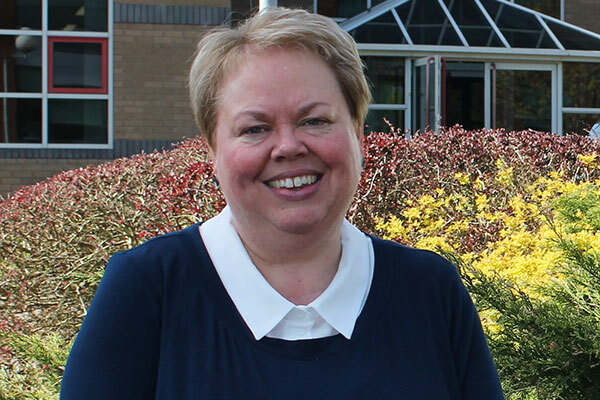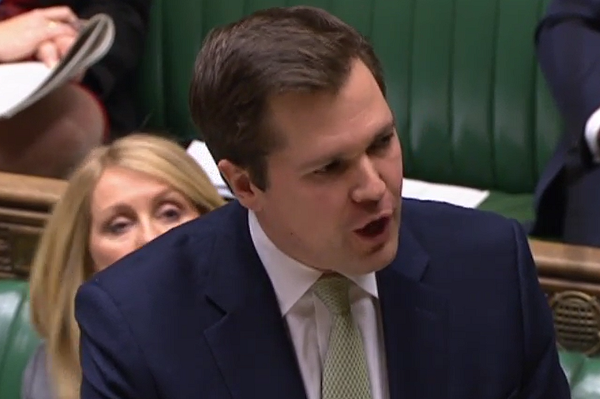Sector bodies raise concerns that First Homes plan could hit social housing numbers
Housing associations have raised concerns over the government’s plan to provide first-time buyers with heavy discounts on new homes, saying the programme could make it more difficult to provide homes for lower-income families in the future.
Today, housing secretary Robert Jenrick unveiled plans for his ‘First Homes’ scheme which looks to offer first-time buyers new homes at prices discounted by a third, with these new homes to be funded through Section 106 developer contributions.
Kate Henderson, chief executive of the National Housing Federation, said that while the organisation supported efforts to increase homeownership, this should not come at the expense of building homes for those most in need.
She added: “We are concerned that this proposal could make it more difficult for housing associations and councils to provide homes for lower-income families."
Helen Evans, chief executive of the G15, the body representing London’s biggest associations, echoed these concerns, saying she worried the programme would only benefit those with high incomes.
In a consultation document published alongside the announcement, the government said that it would like to see more developer contributions used to fund the delivery of First Homes.
The government said in the consultation that it “was mindful of the trade-off between the level of ambition for First Homes, funded through developer contributions, and the supply of other affordable housing tenures”.
The consultation put forward two routes for ensuring that First Homes were delivered – the first being to ensure that a percentage of funding raised through Section 106 obligations are for First Homes, with the government also suggesting a policy that would see a certain percentage of all units delivered on sites over 10 units earmarked for Starter Homes.
In its announcement, the government said that tens of thousands of new homes could be delivered, with Mr Jenrick saying it could be “life-changing for people across the country”.
However, the plans have sparked fear within the affordable housing sector that First Homes could cannibalise the Section 106 funding currently available for other affordable tenures, and ultimately to fewer affordable homes being built.
In 2018/19 there were 28,618 affordable homes delivered through contributions – 17,800 were for social and affordable rent tenures, while 10,300 were for shared ownership.
Ms Henderson said that if the proposal was to go ahead, the sector would need to see a significant increase in government funding to ensure genuinely affordable housing would still be built to the levels needed.
Ms Evans said: “I am concerned that this new product will only help people with very high incomes in areas like London, where the greatest need is for social rent.
Gavin Smart, CIH chief executive, said: “The planning system is currently a major mechanism for delivering new affordable homes for rent.
"If these proposals are implemented, the government must put in place alternative mechanisms and funding to support the continued provision of the affordable rented homes that are needed across the county."
The government stressed in the consultation that it was committed to renewing the £9bn Affordable Homes Programme, and added: “We will consider the provision of affordable housing in the round including the mix of tenures delivered through developer contributions to reflect the government’s priorities and meet the housing needs of local communities across the country.”
The idea for the First Homes scheme was first put forward in the Conservative Party manifesto ahead of the general election. At the time the party predicted that this could apply to 19,000 homes by the mid-2020s.
The consultation included a table of how many First Homes the government believed could be delivered through Section 106 contributions. These estimated that if 40% of developer contributions went to First Homes, 12,000 could be delivered. If 60% of contributions went to these homes, 16,000 could be delivered, and 80% would deliver 19,000 homes.
The government has said that it will also consider appropriate transitional arrangements for implementing whichever policy approach we take forward to minimise the short-term impacts.
The Local Government Association (LGA) responded by saying that it was supportive of programmes that enabled homeownership but warned that this could not come at the expense of affordable homes for rent.
David Renard, housing spokesperson at the LGA, said: “Not everybody is ready to buy and we will be making the case in this consultation that local areas will need discretion on the number of First Homes required in new developments.”
In addition to Section 106 contributions, the government is also looking to deliver some of the First Homes through ‘exception sites’.
Exception sites are usually small sites that can be brought forward outside of the local plan to deliver affordable housing and can deliver identified local needs. Currently there are around 1,000 homes delivered every year on these exception sites.
As part of the government plans, they aim to refocus the policy around exception sites to drive First Homes delivery. Proposals include ensuring that any affordable homes delivered on exception sites must be First Homes for local first-time buyers. It is estimated these changes could deliver up to 4,000 First Homes every year.
Sign up for our daily newsletter
Already have an account? Click here to manage your newsletters
Inside Housing Development Summit 2020
Inside Housing is pleased to join forces with Homes England and the LGA to introduce the Inside Housing Development Summit.
Taking place on 27-28 April 2020, the summit will gather together local authorities, housing associations, developers, fund managers and advisors for a Chatham House style event focussed on making new connections and exploring new delivery models.
The summit will take place over 28 hours, starting with an afternoon plenary on 27 April, an exclusive development site study tour to Northstowe, England's largest new town since Milton Keynes, followed by a business dinner.
The second day will provide opportunities to network with a range of senior Homes England and LGA staff including Nick Walkley, chief executive of Homes England and Mark Lloyd, chief executive of LGA.
You’ll also meet with leaders from across the development ecosystem and take part in group discussions to help you connect and explore new opportunities. All accommodation and meals will be provided within the fee.
Places for each stakeholder group are limited to ensure a balanced mix of participants and to make sure you leave with the relationships and leads you need.
Click here to book your place or for more information















